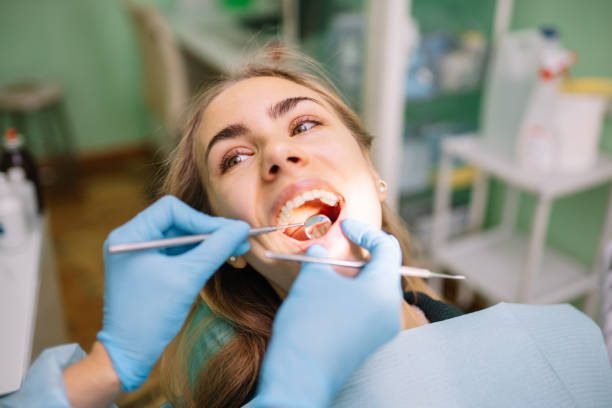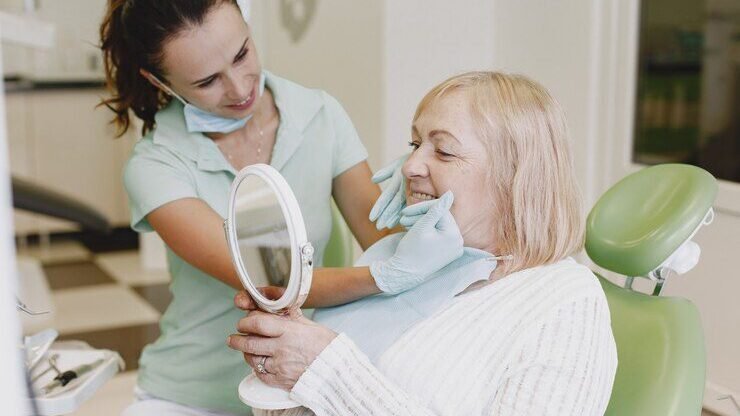Physical Address
304 North Cardinal St.
Dorchester Center, MA 02124
Physical Address
304 North Cardinal St.
Dorchester Center, MA 02124

Understand the importance of maintaining a healthy oral microbiome for fresh teeth.

Smoking and alcohol consumption are lifestyle habits that can have a significant impact on the oral microbiome. Research has shown that both smoking and alcohol can alter the composition of the oral microbiota, leading to an imbalance in the microbial community. This imbalance can result in a variety of oral health problems, including periodontal disease, dental caries, and oral cancer.
Cigarette smoke contains numerous harmful substances, such as nicotine, tar, and carbon monoxide, which can directly affect the oral microbiome. Nicotine, for example, has been found to alter the growth and metabolic activity of oral bacteria, leading to an overgrowth of pathogenic species. Similarly, the alcohol in alcoholic beverages can disrupt the natural balance of oral bacteria and promote the growth of harmful species.
Furthermore, both smoking and alcohol consumption can compromise the immune system, making it less effective in defending against oral infections. This can further exacerbate the imbalance in the oral microbiome and increase the risk of developing oral health issues.
In conclusion, it is clear that smoking and alcohol consumption can have a detrimental impact on the oral microbiome. It is important for individuals to be aware of the potential risks associated with these lifestyle habits and take proactive steps to maintain a healthy oral microbiome. Regular dental check-ups and professional cleanings, along with good oral hygiene practices, can help mitigate the negative effects of smoking and alcohol on oral health.

Regular dental check-ups and professional cleanings play a crucial role in preserving a healthy oral microbiome. These routine visits to the dentist are not just about getting your teeth cleaned – they serve as an essential preventive measure to safeguard your overall oral health.
During a dental check-up, your dentist will thoroughly examine your teeth, gums, and oral cavity to detect any signs of dental problems such as gum disease, cavities, or oral cancer. Early detection is key in addressing these issues before they escalate into more serious and potentially irreversible conditions. Additionally, your dentist will assess the state of your oral microbiome, which refers to the diverse community of microorganisms that inhabit your mouth. By analyzing the composition and balance of these microorganisms, your dentist can identify any imbalances or harmful bacteria that may be present.
Professional cleanings, also known as dental prophylaxis, are typically performed during dental check-ups. This procedure involves removing plaque and tartar buildup from your teeth and below the gum line. While regular brushing and flossing can help to some extent, professional cleanings are necessary to reach areas that are difficult to clean with regular oral hygiene practices. By removing plaque and tartar, dental cleanings help to inhibit the growth of harmful bacteria and reduce the risk of gum disease and tooth decay.
In addition to cleaning your teeth, your dental hygienist will also provide valuable oral care tips and guidance tailored to your specific needs. This includes advice on proper brushing and flossing techniques, as well as recommendations for oral health products that are best suited to your individual circumstances. By taking the time to educate patients about oral hygiene, dental professionals empower individuals to take an active role in maintaining their oral health and preserving a healthy oral microbiome.
It is important to note that regular dental check-ups and professional cleanings are recommended for individuals of all ages. Whether you are a child, teenager, adult, or older adult, scheduling regular dental visits is essential for long-term oral health. Neglecting these check-ups can lead to the accumulation of plaque and tartar, which can eventually contribute to gum disease, tooth decay, and even tooth loss.
In summary, regular dental check-ups and professional cleanings are vital for preserving a healthy oral microbiome. These preventive measures not only help to detect and treat dental problems at an early stage but also ensure that harmful bacteria are kept at bay. By prioritizing routine dental care, individuals can maintain optimal oral health and minimize the risk of oral diseases and complications.

As we age, our bodies go through various changes, and our oral health is no exception. Maintaining a healthy oral microbiome is crucial throughout our lifespan, from infancy to older adulthood. The oral microbiome refers to the community of microorganisms, including bacteria, fungi, and viruses, that reside in our mouths. These microorganisms play a significant role in oral health by helping to break down food, neutralizing acids, and preventing the colonization of harmful bacteria.
In infancy, the development of a healthy oral microbiome begins with proper oral hygiene practices. Parents should gently clean their baby’s gums with a soft cloth or infant toothbrush, even before teeth have erupted. As the baby gets older and begins to have teeth, brushing should be introduced using a small, soft-bristled toothbrush and a smear of fluoride toothpaste. It is also essential to avoid putting babies to bed with a bottle filled with sugary liquids, as this can contribute to tooth decay and disrupt the balance of the oral microbiome.
As children grow older, their oral health habits should be encouraged and supervised. Regular brushing and flossing become essential for maintaining a healthy oral microbiome. It is also crucial to schedule regular dental check-ups and professional cleanings to monitor oral health, detect any issues early on, and receive preventive treatments such as dental sealants and fluoride applications. These measures can help establish a strong foundation for a healthy oral microbiome that will benefit them throughout their lives.
Here’s a table summarizing oral microbiome health through the lifespan:
| Stage of Life | Oral Microbiome Health | Credible Source |
|---|---|---|
| Infancy | During infancy, the oral microbiome begins to develop, influenced by factors such as mode of delivery (vaginal birth vs. Cesarean section), breastfeeding vs. formula feeding, and introduction of solid foods. Early establishment of a diverse and balanced oral microbiome sets the foundation for oral health. | National Institute of Dental and Craniofacial Research (NIDCR): Link |
| Childhood | In childhood, the oral microbiome continues to evolve, influenced by diet, oral hygiene practices, and exposure to environmental factors. Regular dental care, including brushing, flossing, and dental check-ups, supports the maintenance of a healthy oral microbiome and prevents dental issues. | American Academy of Pediatric Dentistry (AAPD): Link |
| Adolescence | Adolescence is a critical period for oral health as hormonal changes, dietary habits, and lifestyle factors may impact the composition and balance of the oral microbiome. Practicing good oral hygiene, limiting sugary foods and drinks, and avoiding tobacco and alcohol support oral microbiome health. | Centers for Disease Control and Prevention (CDC): Link |
| Adulthood | In adulthood, maintaining a healthy oral microbiome is essential for preventing dental issues such as cavities, gum disease, and bad breath. Proper oral hygiene, regular dental visits, a balanced diet, and healthy lifestyle habits contribute to oral microbiome health throughout adulthood. | American Dental Association (ADA): Link |
| Older Adults | As individuals age, changes in saliva production, medication use, and systemic health conditions may affect the oral microbiome. Older adults may be at increased risk of dental problems, making regular dental care and preventive measures crucial for maintaining oral health and quality of life. | National Institute on Aging (NIA): Link |
Stay tuned for the next section of this article, where we will explore how the oral microbiome evolves as we transition to adulthood and older adulthood, and the steps we can take to preserve its health.
Smoking and alcohol consumption can disrupt the balance of bacteria in the oral microbiome, leading to an increased risk of oral health issues such as gum disease and tooth decay.
Yes, regular dental check-ups and professional cleanings are essential for preserving a healthy oral microbiome. These visits allow for early detection and treatment of any oral health issues, and professional cleanings help remove plaque and bacteria that can disrupt the balance of the microbiome.
The oral microbiome evolves and changes as we age. In infancy, it develops and becomes more diverse, influenced by factors such as breastfeeding and the introduction of solid foods. As we get older, the balance of bacteria can be affected by factors such as diet, medications, and overall health.
Yes, poor oral hygiene can disrupt the balance of bacteria in the oral microbiome. Failure to brush and floss regularly allows plaque and bacteria to build up, leading to an increased risk of gum disease, tooth decay, and other oral health issues.
Maintaining good oral hygiene practices, such as regular brushing and flossing, can help promote a healthy oral microbiome. Additionally, consuming a balanced diet, limiting sugary foods and drinks, and avoiding tobacco and excessive alcohol consumption can also contribute to a healthier oral microbiome.